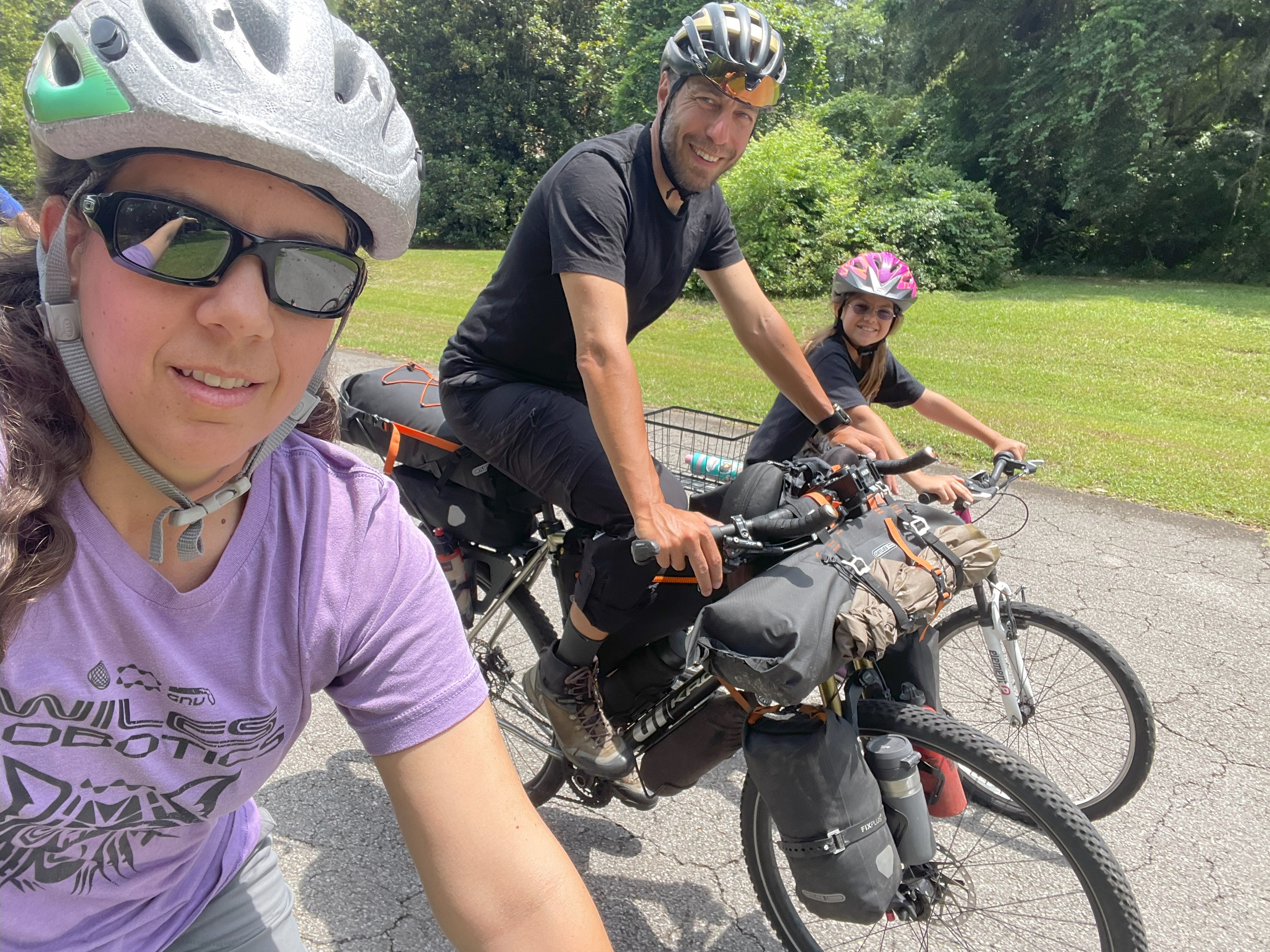
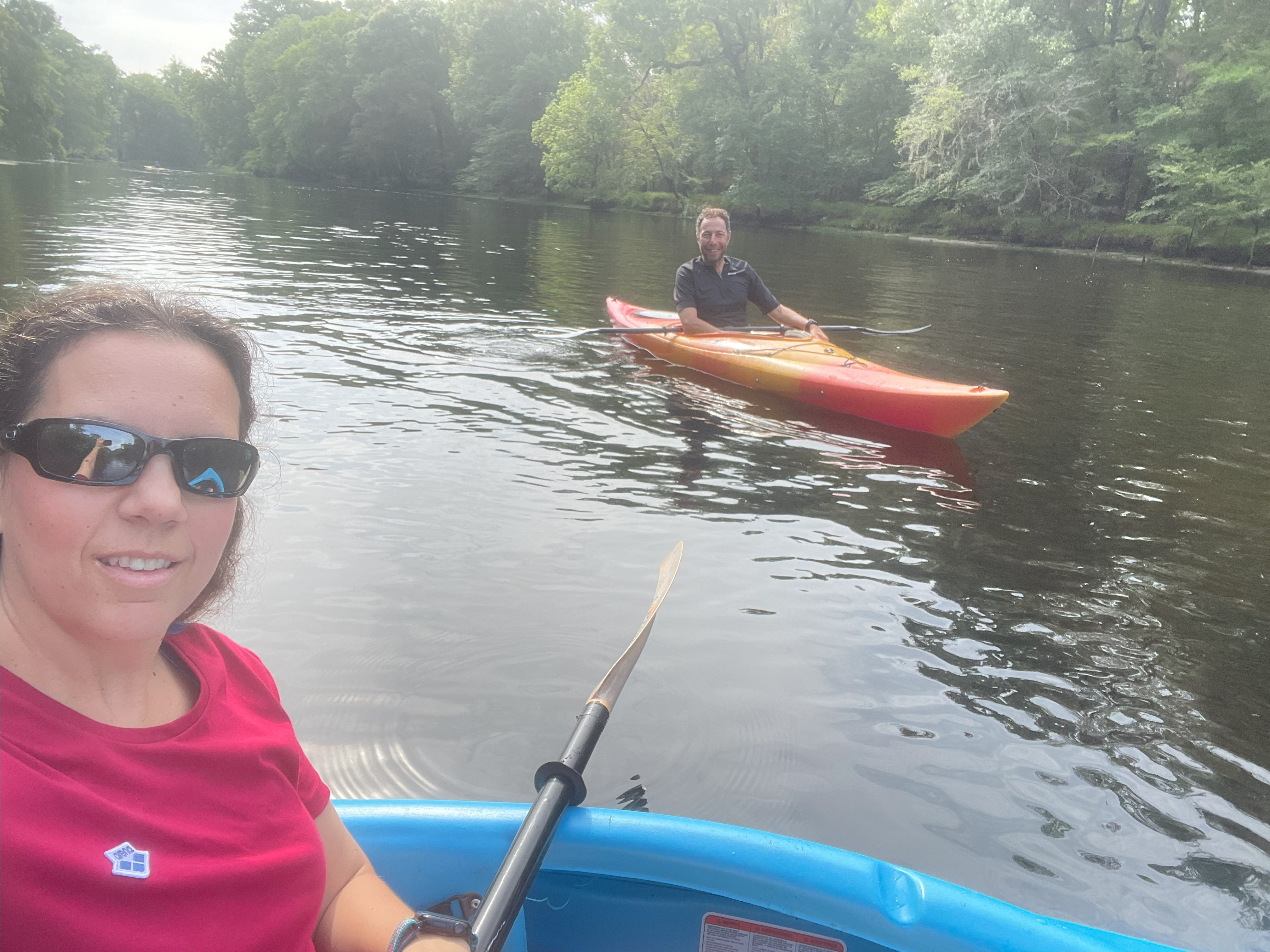
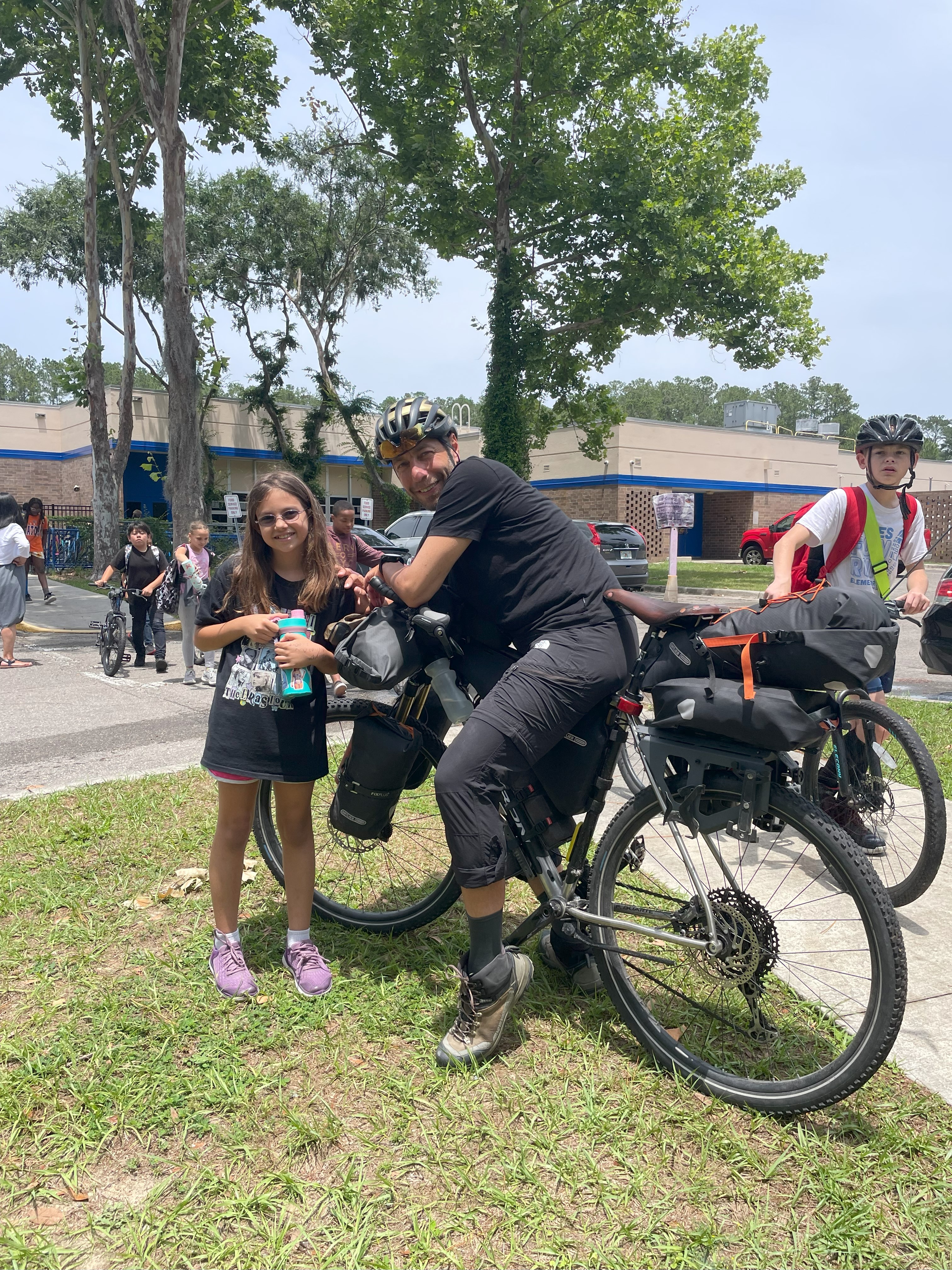
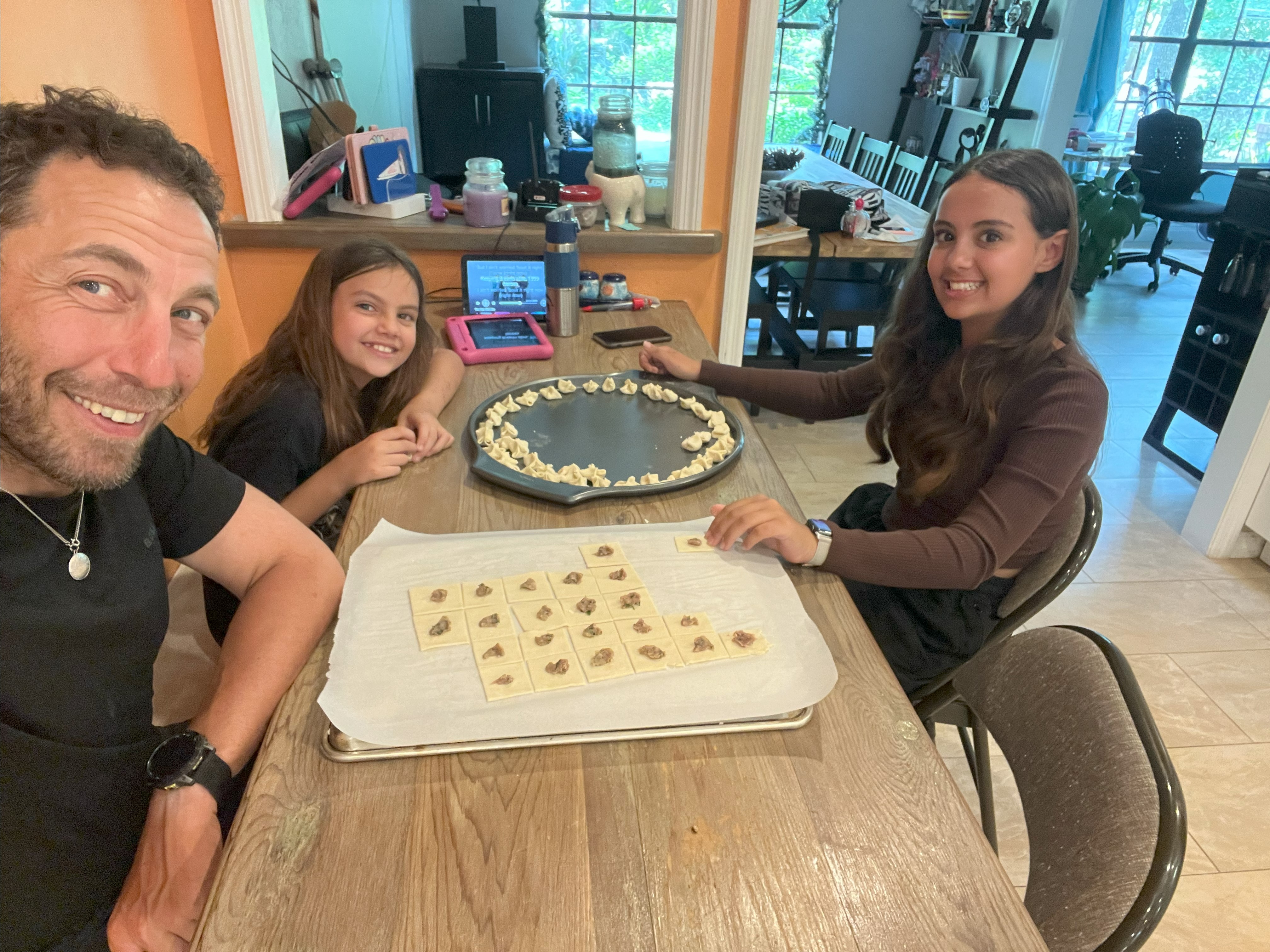
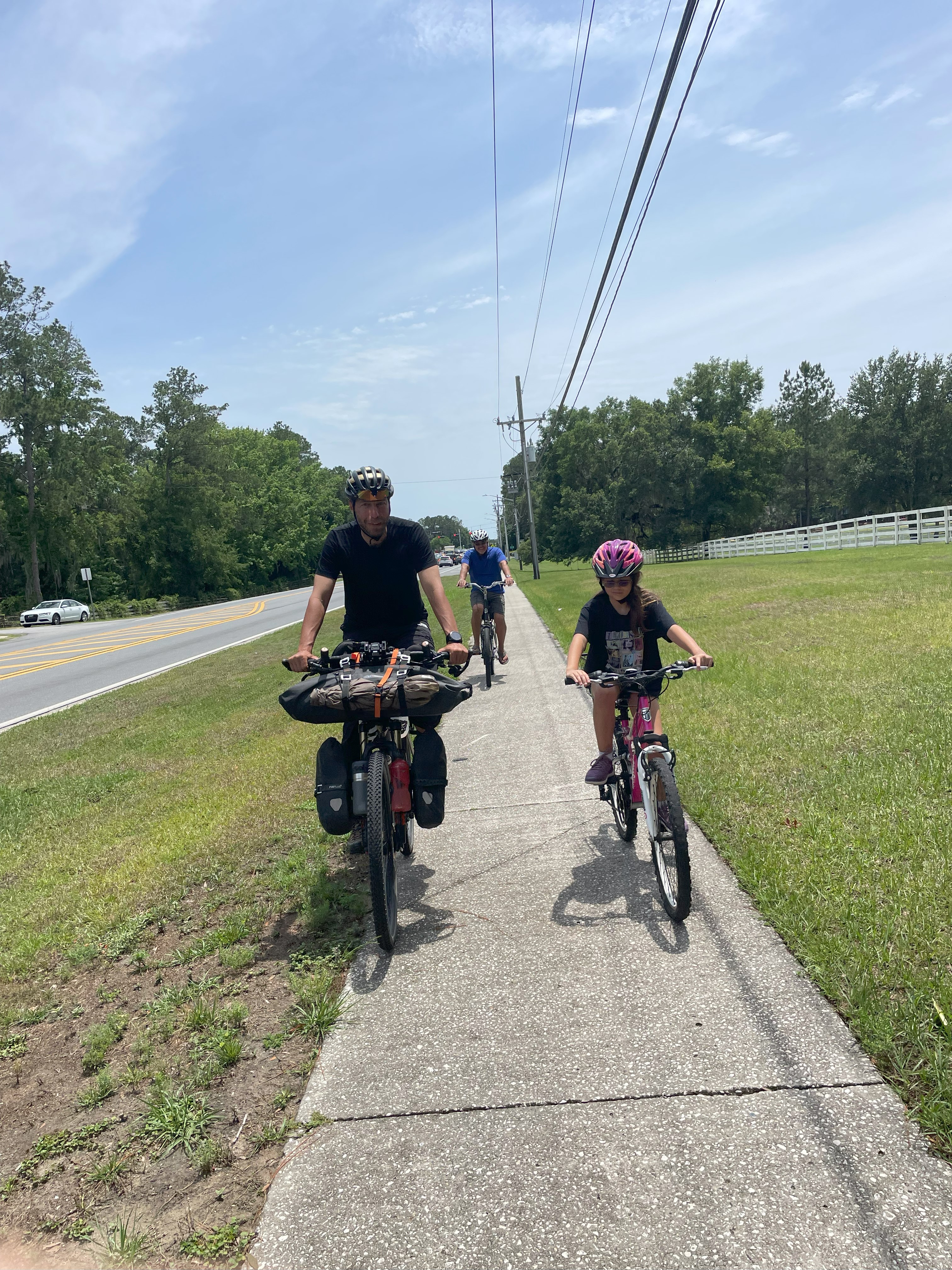
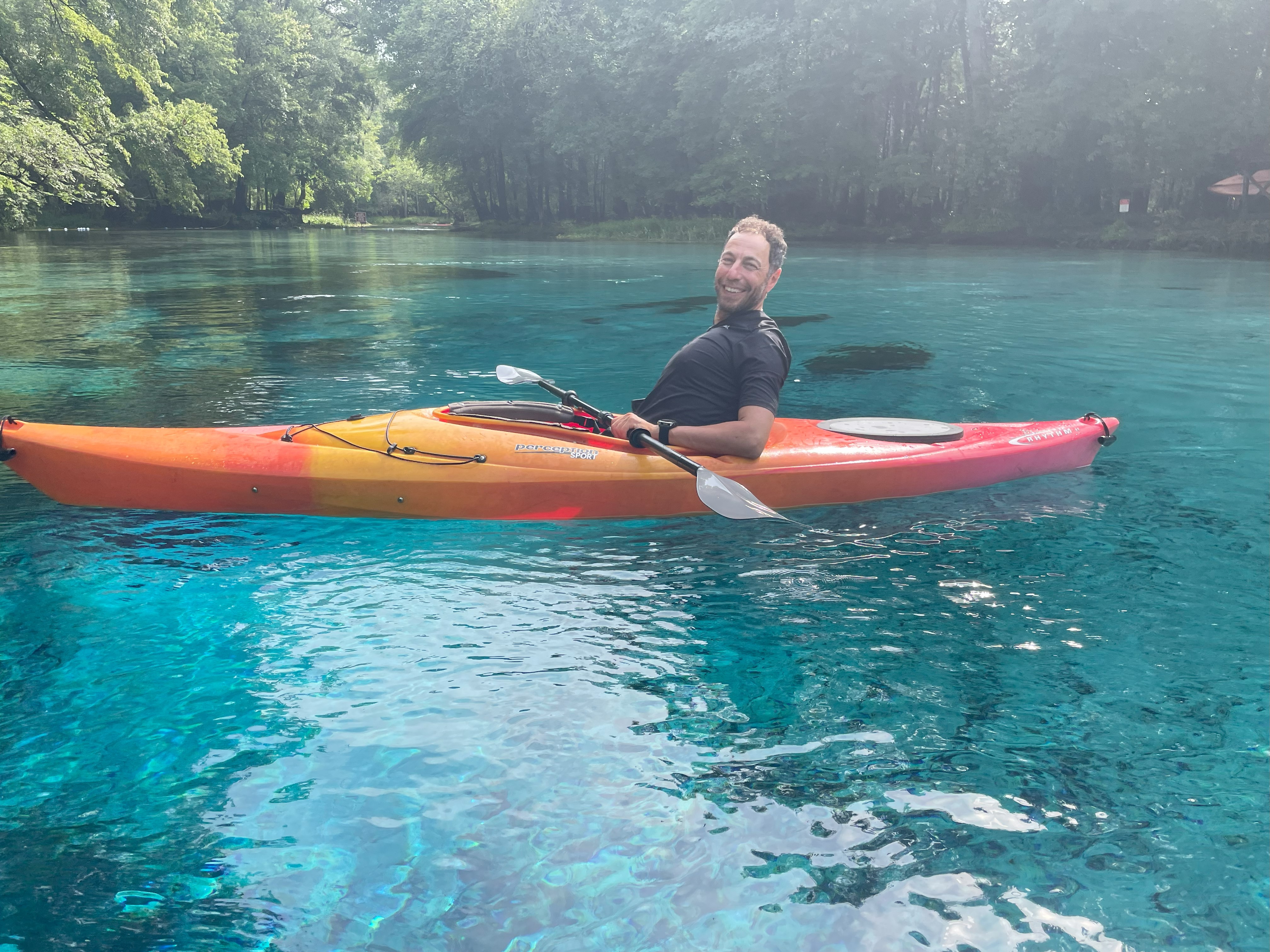
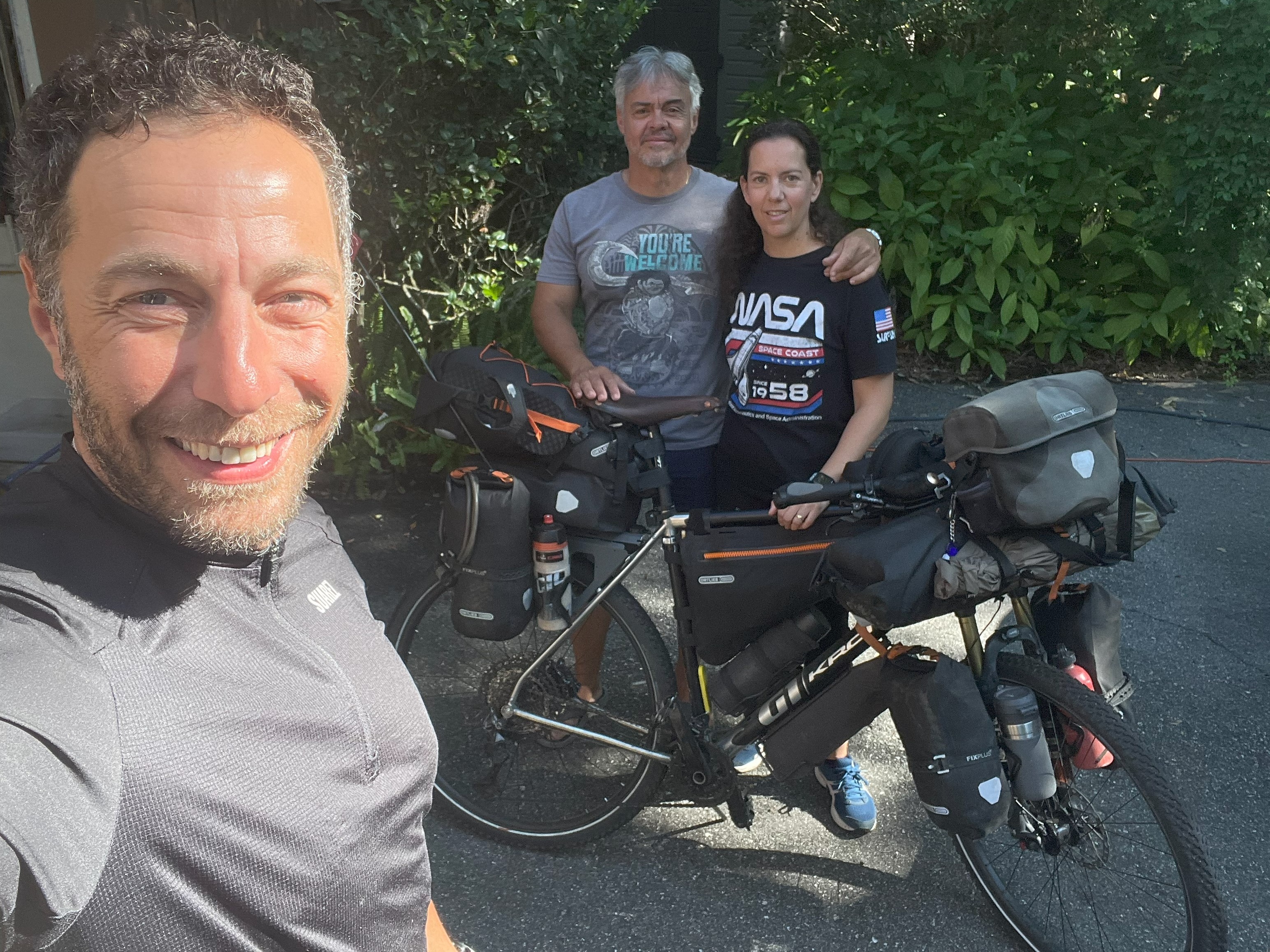
This week, we hosted Gürkan Genç in our home. I want to talk about this very special person and what he means to me. For those who don't know, Gürkan has been cycling around the world since 2010. After completing Asia, Europe, Africa, and South America, his journey brought him to Florida, where we live. He started from Miami and set off towards Alaska. Seeing that he was so close, I immediately invited him to our home with great joy and excitement, hoping I could reach him. I was sure it would be an unforgettable experience to meet and listen to an athlete on such an extraordinary journey.. Of course, his adventures are incredible, but it's also possible to read them from his meticulously maintained website. What I was most curious about was understanding the mindset, perspective, and characteristics of someone who set out on and successfully achieved such a goal.
At the age of 18, my immense passion for freediving took me on a difficult journey to pursue world records with an unstoppable determination. On one side, I had big doubts about whether it was something that could be done and the fear of losing my life because of undertaking something so risky; on the other side, finding sponsors, getting logistical support, acquiring equipment (at that time, there was no freediving gear made for women, and the world had decided that possibly the smallest sized freediver was a size 42 man with size 40 feet), and many unknown obstacles awaited me. I was determined to reach this goal and, after a long and difficult journey, I achieved it. While following Gürkan, like many others, I wondered how he physically coped with such a long journey on a bicycle, but my own past reminded me that this was just the tip of the iceberg and that most of the challenges were below the surface. I was curious about how he dealt with all of them. How did he start this journey, how did he believe he could do it, how did he figure out what to carry, how to do it, what route to take without any support or anyone who believed in him, and how did he handle the unforeseen surprises and forces pulling one down as one becomes more well-known?
I expected that factors such as the day's temperature, rain, how rested someone is, the quality of the road, and so on would unpredictably affect a cyclist's schedule. Yet, 2 days in advance, Gürkan said: "Yasemin, if it's suitable, I'll arrive at your house at 5:30pm on Monday." I didn't understand how he could give such a precise time, but I said, "Okay, we'll be waiting." He arrived at our house at 17:33. Clearly, every small detail was planned with great precision, and he arrived with an amazing bicycle that seemed like a spacecraft to me, equipped with materials that were not apparent from afar but were of very high quality. I saw that he had much less equipment than I had anticipated, but each small bag was like a magician's hat, containing more than I could imagine (like a chair and a drone). This is the pinnacle of optimization, in my opinion. Gürkan explained that after many years, with good support, he had reached a good point, but in his first year, he pedaled to China protecting his much heavier equipment with shopping bags from rain, dealing with punctures and bike issues every minute. This reminded me of a documentary I watched about the famous sushi chef Jiro Ono in Japan. The documentary described the paths he took until he achieved perfect sushi, spending decades everyday only cooking rice or only cutting fish. In the end, the difference between the sushi he made and another sushi might seem small, but it was the result of years of mastery.
We listened to Gürkan's fascinating stories from all around the world, filled with well-considered observations. His stories ranged from having to complete a very risky and difficult climb and obstacles to prove he is worthy enough to see a temple in China—something I thought only happened in movies—to the endless clothing dumps in the desert of Chile, to the scary moments of encountering lions, giraffes, and elephants in Africa, to the chiefs in Saudi Arabia wanting to marry him off to their daughters due to a language misunderstanding, making him a prince there.
As we listened to these stories told with great empathy and humility, I realized that they could only come from someone who had seen the world meter by meter. Considering the very few people who have done this, and if we add the percentage of those who make deep observations and are willing to share them, it is an almost impossible opportunity to get to listen to such a perspective. This made me think, if there is such a thing as the ultimate treasure, something that cannot be replaced in any way, this is it. Fortunately, Gürkan is also a good writer and shares these stories on his website without hesitation. I hadn't realized he was writing these as I was following him on social media only. Now, I have a library of reading material that I will enjoy for quite some time.
In addition to his writings and experiences, I realized that the work he does requires a personality that adapts to its surroundings like a chameleon. For example, if we are about to go somewhere, he notices the driver heading towards the car in the middle of a heated story with someone and he wraps it up in a second so he doesn’t keep the driver waiting and is ready in the car before you sit. During a very concentrated looking writing session, he senses that the food is cooked and sets the table instantly. When we go canoeing, despite not knowing how I load the canoes with my special methods, he appears next to me and mirrors what I do, making the task easy to complete. He takes a shower without disrupting anyone's routine, finding an unused corner to sit in, sharing as much as the listener wants, and not sharing if they don't want to. He is especially meticulous in the face of a child's curiosity and interest. He answered my 9-year-old daughter's endless questions for hours, picked her up from school on his bike, and even accompanied her on the bike tour she gave him in our neighborhood, listening with interest. I wonder if he acquired these skills from traveling for so many years, or if he was able to travel and see because he had these skills. I think it must be the latter. He also shows sincere respect for everyone's life and achievements. It's clear that he doesn't have even a hidden sense of superiority, thinking, "I do extraordinary things, you don't." He makes the other person feel that their stories, whether they ran 5 km or raised children, are equally successful.
The point I want to get to from all this is this: Life flows like a river. Our jobs, our pursuits, our daily schedules put us into a predictable routine. It is easy to let oneself go with this flow, which gives peace and comfort to a person, and to adapt completely by assuming an even more hydrodynamic position, flowing along without resisting. But as we allow the comfort to settle in, life shrinks more and more. While thinking that we are happy within the comfort of doing the same things, the days and life pass by. To truly live life, instead of being carried along by the river in the position of least resistance, we need to open our arms, look around, and swim to explore the shores.
Despite the very persuasive complaints of my daughters about being woken up early every weekend, we are parents who insist on going hiking, paddling with our kayaks or go diving. It is difficult for us too; after a busy workweek, what I want to do on the weekend is to put my feet up, read a book, or watch TV, but knowing that what will really make us feel good is this, I always prepare our equipment without hesitation and go out into nature. Once we arrive and start exploring, nothing can replace the peace and happiness that arises within us, and we always return home with smiles. No matter how much work we have, no matter how tired we are, in the evenings we play volleyball or badminton in our backyard with the kids or go cycling around. This activity always ends with laughter.
Despite being someone who is aware and attentive to all these, when I go to pick up my daughter from school by bike at noon I feel like I might faint from the heat. When I asked Gürkan, "How do you cope with Florida's summer heat?" He said, "I don’t know; it feels very comfortable here. After crossing a desert at 60C degrees in Africa, I think I've leveled up in terms of heat, but I think the weather in Florida is quite nice." While I do a one-hour bike workout and come home saying, "Oh man, I did a good workout, I'm tired, I deserve a good rest," Gürkan sets off from the same house, from the same garage, with the same bike as me and continues towards Alaska instead of just doing a one-hour workout.
While our life shrinks around us like a deflated balloon with our comforts, people like Gürkan stretch the balloon to its limits. Instead of trying to convince ourselves how amazing our life is and how correct our choices are, if we stop, reflect, and digest what people like Gürkan are doing, I think we can turn the balloon we live in into a much bigger balloon thanks to these people. What Gürkan has done proves to me what a great adaptation ability humans actually have. With the lessons I've learned from this, when I get on a bike and think, "It's so hot, I should go home," I will instead think, "It feels very hot, which means my body has forgotten how to cope with this, I've been too comfortable, so I need to get out of my comfort zone more, train, and acclimate myself." This is just one example; I can apply this to many areas of life. The writer Mo Gawdat has written many books that I love and his happiness formula is: "Happiness is greater than or equal to your expectation of how life should be minus the events of your life." If we consider the example of cycling on a hot day, by changing our expectations and embracing challenges, we can see a difficult situation as an opportunity to improve ourselves and even learn to derive happiness from it.
For these reasons, I invite you to follow Gürkan Genç and others like him who push the limits, to try to understand their perspectives and what they do, to swim instead of being carried along by the river. From now on, I will read all his writings and tell my loved ones about it, especially my children. By taking the time to think and reflect, I will allow the examples of people like him to make our lives bigger and help us gain the right perspective.
After a beautiful 3 days together, making mantı with the children, playing badminton in the backyard, canoeing on the beautiful rivers around us or enjoying mundane activities like cycling around the neighborhood, it felt like saying goodbye to a friend of 30 years, even though we hadn't met before because the years it takes to make a good friend was just replaced by having lived a life of similar dreams. Safe travels, Gürkan, we are grateful for what you have done and for sharing them with everyone.






